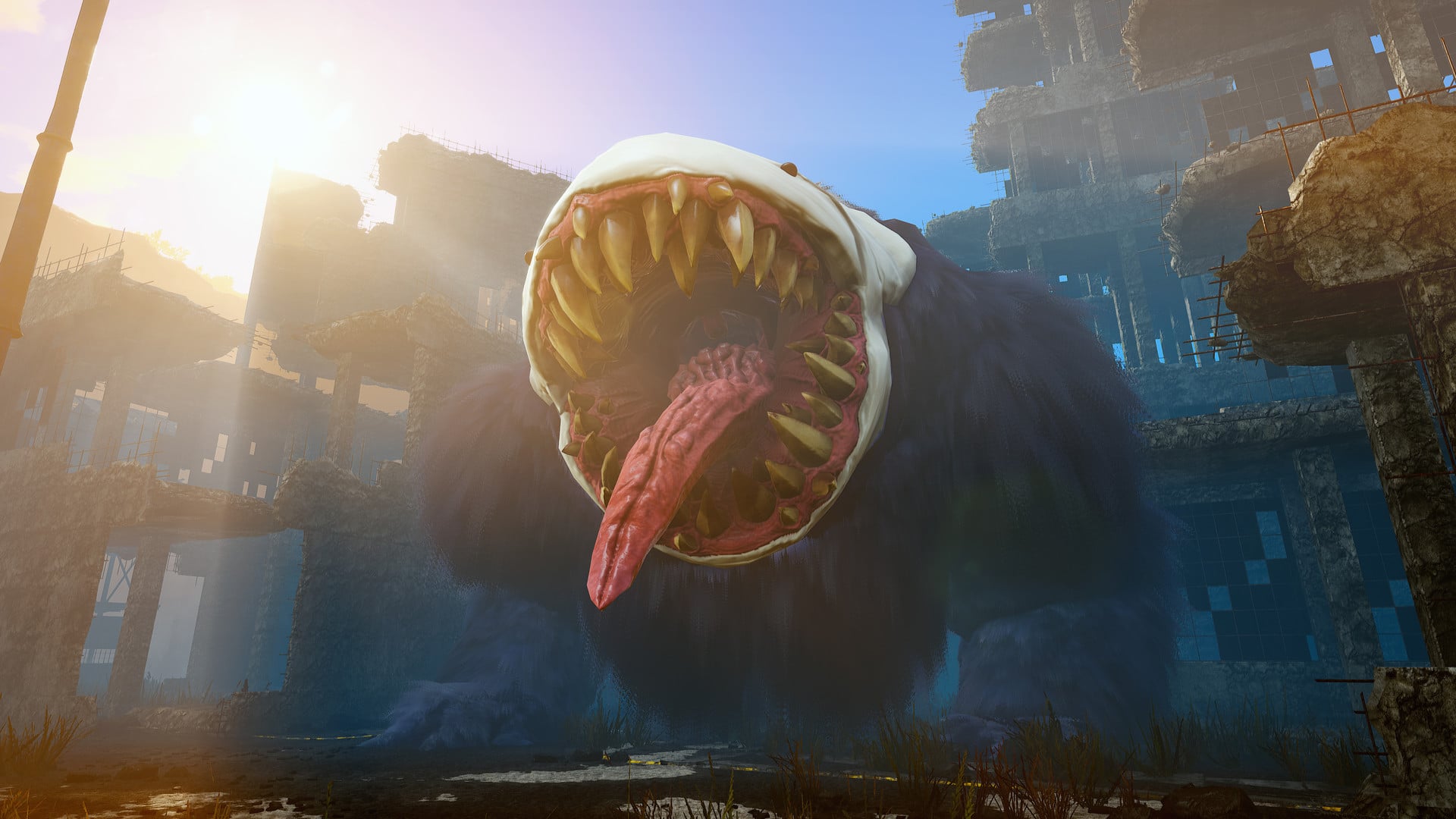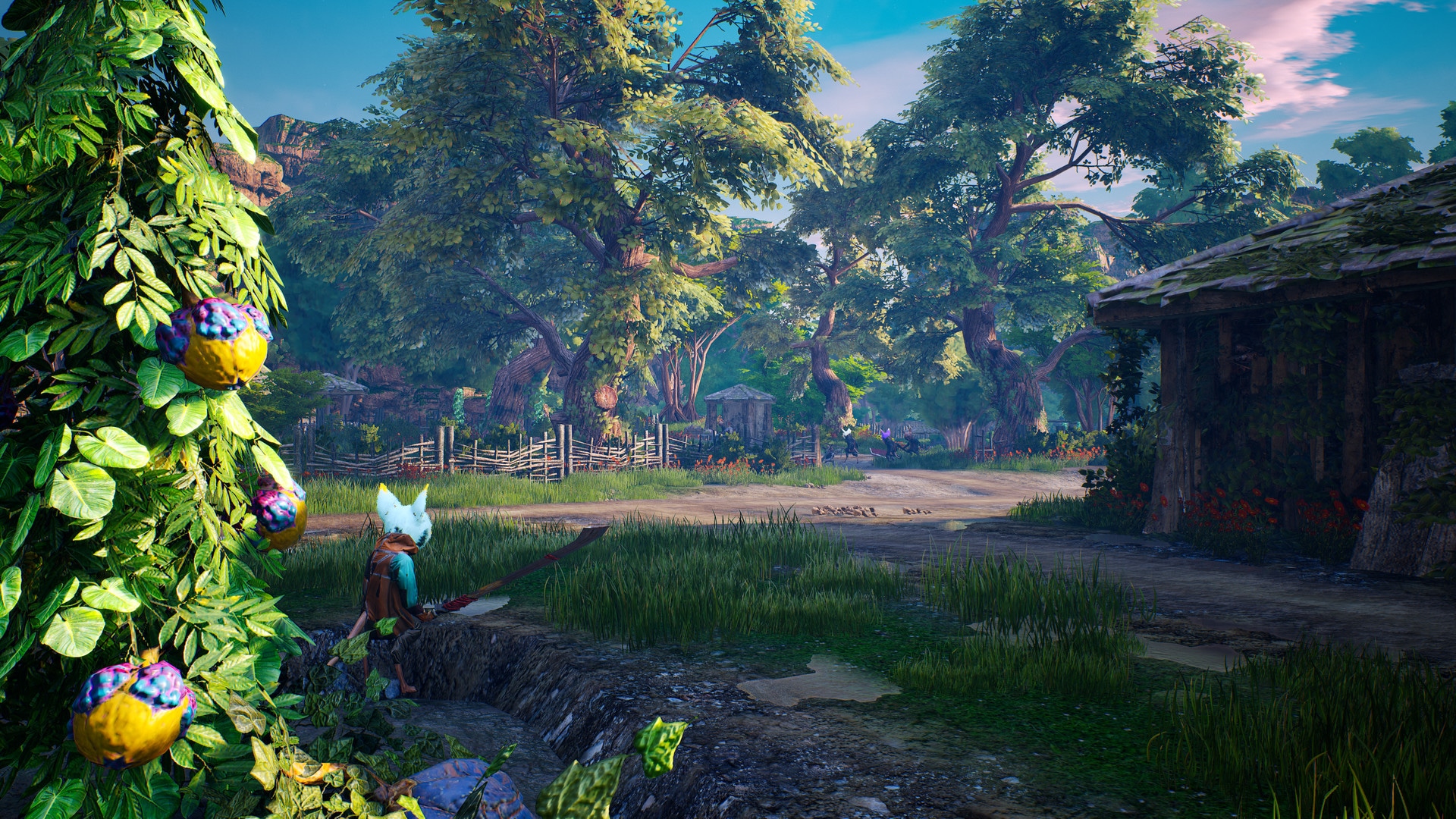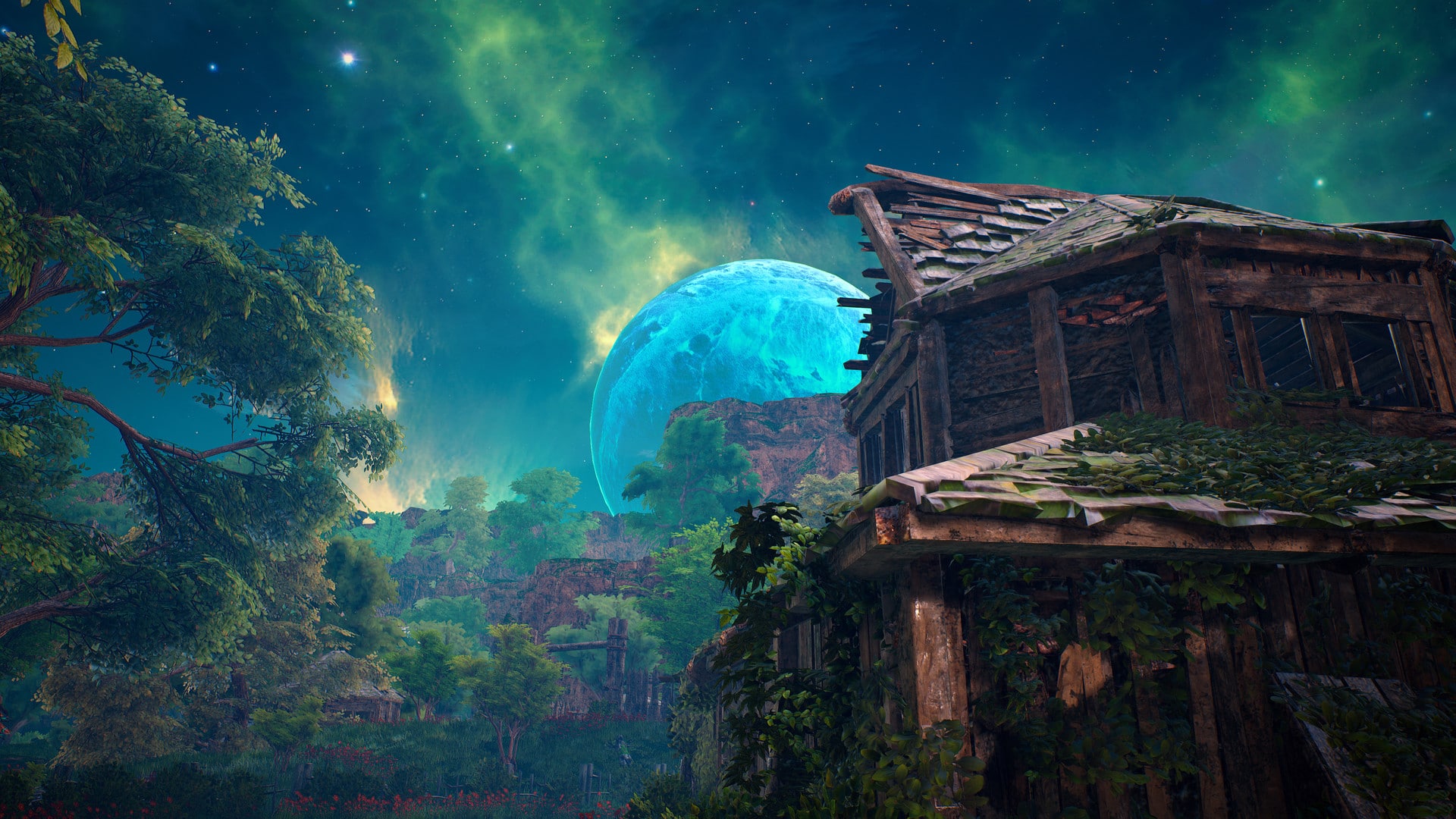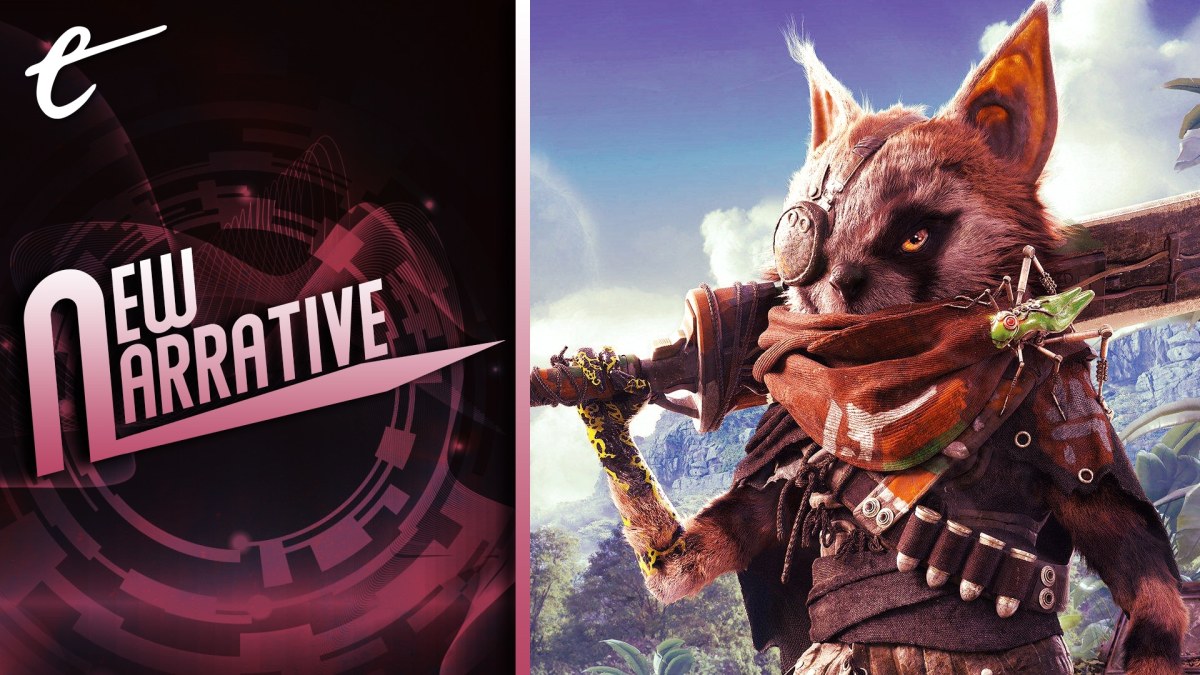This article contains spoilers for Biomutant amid its discussion of climate fiction.
Climate fiction as a distinct subgenre has been around at least since J.G. Ballard’s The Wind from Nowhere (tracing roots back to the time of Jules Verne), but it has seen a sharp rise in the last decade — no doubt at least partly in response to our present climate crisis. With a few exceptions, like 2018’s excellent Frostpunk, it has rarely been tackled directly in video games. That seems like a strange oversight. After all, there is no shortage of post-apocalyptic games, so why not a climate post-apocalypse?
This oversight is potentially an advantage for Biomutant, however, which wears its ecological premise on its sleeve. Its vast open world is a strikingly vibrant post-post-apocalypse in which humans have disappeared in the wake of an ecological disaster and mutated animals have taken over. They have planted a giant Tree of Life, which can rejuvenate the ecosystem — if the animals find a way to work together and save it from the monsters gnawing at its roots.
Unfortunately, this rather on-the-nose message of environmental destruction and healing is as far as Biomutant is willing to push its climate fiction. The background lore manages to say both too much and too little when unpacking the game’s environmental premise, and it feels like a wasted opportunity.

Biomutant says too much by dotting the world map with posters that explain how the ecological disaster came about. An evil corporation called Toxanol was engaged in just about every bit of environmental malpractice imaginable, from offshore drilling to ocean dumping, and eventually caused irrevocable changes to the ecosystem. These changes were also responsible for the various mutated flora and fauna of the world.
I can’t help but feel it would have been more effective to leave this unsaid. Biomutant‘s art direction is wonderfully evocative. Skeletons of crumbling skyscrapers jut out from oil spills. Hazardous gases surround the cracked chimneys of derelict power plants. Landfills and the rusting husks of wrecked vehicles interrupt rolling savannas. Abandoned petrol stations slowly succumb to surrounding plant life.
In short, the environmental storytelling speaks for itself, and sometimes the most effective narratives are ones that take a deliberately minimalist approach. Consider how little is given away about the cataclysm in Cormac McCarthy’s The Road, for example, or about the biotech machinations of the Company at the heart of Jeff VanderMeer’s Borne. The best minimalist fiction keeps you guessing, and that in turn can keep you thinking about the parallels the fiction might have with our reality.
On the other hand, Biomutant says too little when it pins the entire ecological disaster on the deliberate actions of a single evil corporation. There is an opportunity here to address our collective climate inaction, the harm done by non-corporate agents, and the broader complexities of our climate crisis, but Biomutant never makes full use of it.

This isn’t a question of whether games should have a political message. Biomutant clearly wants to have such a message or it wouldn’t have bothered with the ecological premise and evil corporations in the first place, but it oversimplifies it to the point of caricature.
Other aspects of Biomutant‘s narrative are likewise half-baked. Animals have taken over from humans but seem to display oddly human traits, to the point of mimicking human ideologies amongst their tribes. What hope is there for a sustainable ecosystem if some of the tribes seem just as preoccupied with conquest and old-world technology as their human forebears, for instance?
A bizarre offshoot of the main questline involves finding passengers to fill a spaceship to act as an ark in the event the Tree of Life dies and the world goes to hell. It’s an oddly cynical narrative in an otherwise hopeful story, and it seems particularly out of place if you unlock the good ending, in which all the tribes are united in cooperation and the Tree of Life is saved. Would it not have been more impactful to let the player deal with the consequences of their decisions rather than run away from them? After all, we do not have a second shot at fixing this planet if we continue to screw it up.

There are other problems too. The game’s primary antagonist, Lupa-Lupin, is set up as a tragic product of his environment — a predator who cannot help but hunt and kill. Yet when half the other sentient animals are happy to wield semi-automatic weapons and unleash carnage on each other without a second thought, it’s not obvious what sets apart Lupa-Lupin’s particular brand of destruction.
More generally, given that giant monsters pop out of the ground seemingly at random, it’s difficult to see what being a predator might amount to in this ecosystem. Contrast Biomutant with the post-post-apocalypse of Horizon Zero Dawn, which took care to give its robotic animals clear habitats and to explain their function within the broader environment.
Much like the game as a whole, the climate fiction of Biomutant is a frustratingly uneven mix of ideas. There is a lot going on here, but most of it is executed without the nuance that could have elevated it to poignancy in a time of escalating climate concerns.





